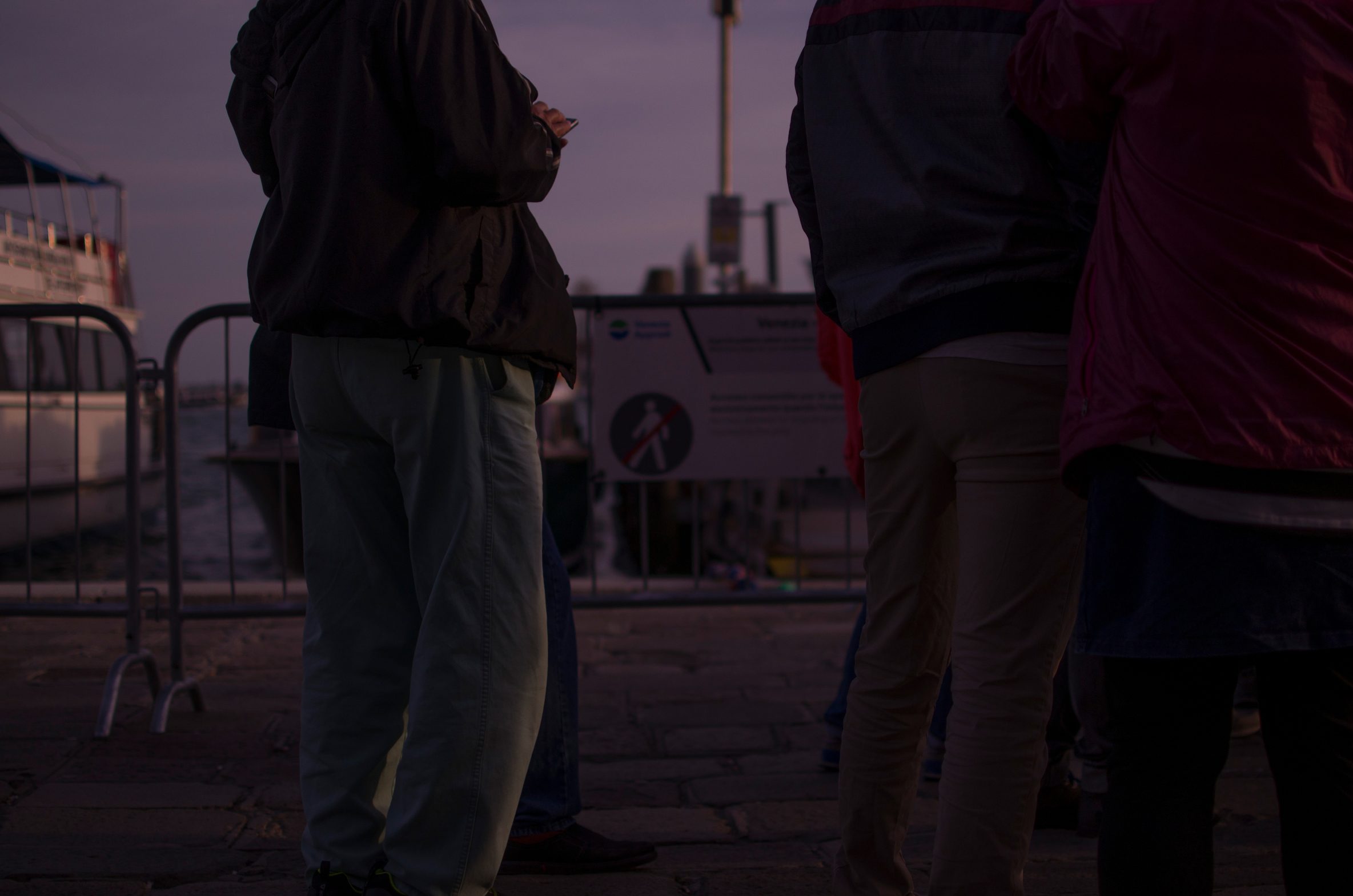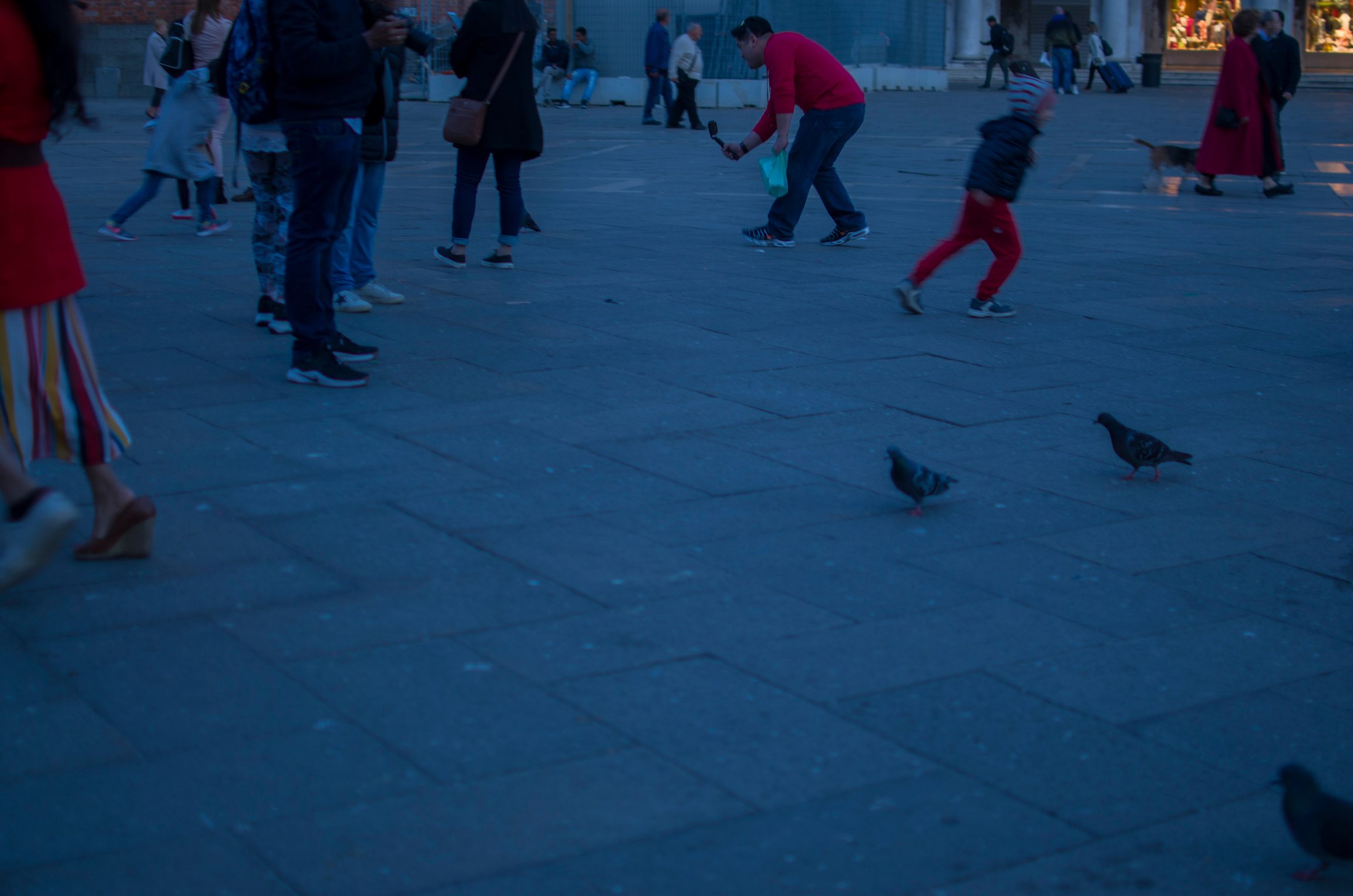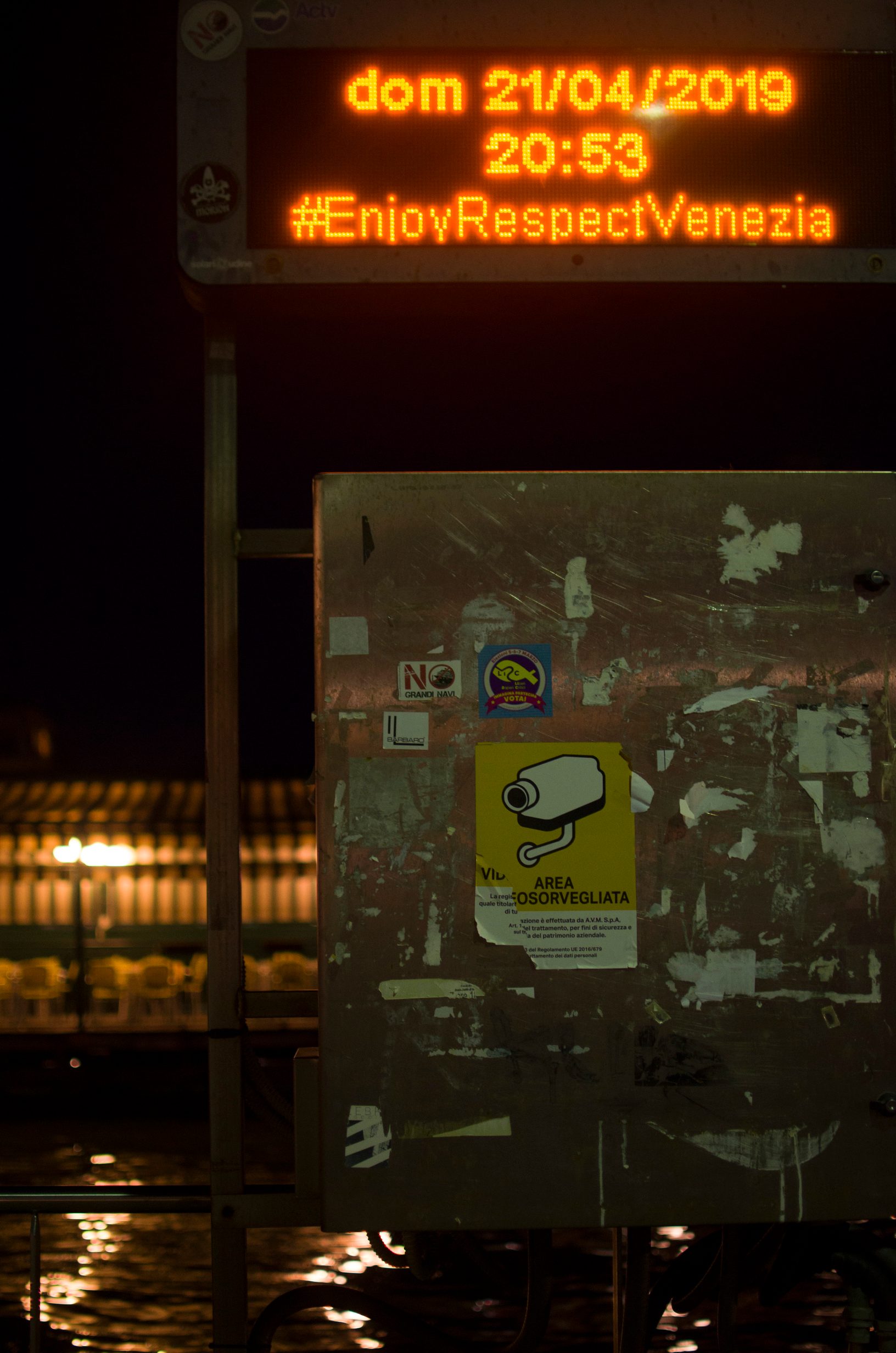Have you ever held a fish in your hand? It’s slippery, damp, scaly, a little flabby. Made just for the water. It’s lively: it could slip out of your hands, be lost forever. If you are not careful, it may be poisonous and sting you. You must know how to handle it. “Venice is a fish” they say, and the same conditions apply. Venice really does swim: sometimes with elegance, down in the perilous waters of the contemporary, sometimes with breathlessness, pursued by ravenous predators. Delicate, tasty, insidious. In short, even here, between Calli and Campielli, we must know how to navigate it. So here we go with some tips, although we don’t like rules so much. But with this hybrid creature we must at least be aware of them. On May 16th, the city council of Venice approved a new urban police regulation that integrates many of the laws developed over the years, introducing among other things the new penalty “urban Daspo” that can ban you from the city. We hope it won’t go that far. We have compiled the essentials, also the most absurd, the least known: just to make sure that, while holding a spritz and a cuttlefish, you have “a pleasant stay in our city ” (metallic voice).
We have collected the essential ones, the most absurd, the least known of them all: so that we can make sure that, while holding a spritz and a cuttlefish, you have “a pleasant stay in our city ” (metallic voice).
Do you like the thrill? Look for it at the Biennial, or in some museum, because bridges are not springboards. The only authorized flights are the ones off St. Mark’s Campanile during the Carnival. Diving in the Grand Canal: 450 euros penalty. Even if you are only looking for some relief from hot temperature, remember that it is always “forbidden to dive, swim or bathe in any water mirror“. Article 34 of Urban Police Regulations.
Does the heat bother you? Have you spent the winter in the gym and want to show off biceps, pectorals, sculpted abs? Choose a beach, not a city of art. Sanction is 200 euros. “It is forbidden to circulate through the city streets, to stop and travel on public or private means in seaside or bare-chested outfits“. Article 30 of the Urban Police Regulations.
Feel a little hungry? Be cautious. Apart from the insults of some local grumpy citizen, if you are in the wrong place (like in San Marco) your snack could be expensive: to be accurate exactly 200 euros .”It is forbidden, however, to stop to consume food or drinks, with the exception of the areas granted to the Public Exercises“. Article 32 of the Urban Police Regulations.
Padlocks on the bridge to seal a young love? 100 euros, Art. 36.
Are you tired? Do you want to take a rest? Do you happen to have a tent in your backpack and want to camp? Niet. It is forbidden to bivouac, to lie on the benches, also to stay occasionally with camping equipment throughout the city of Venice. Sanction 50 euros. Art. 33. Do you want the photo in St.Mark’s Square surrounded by a cloud of pigeons? Well come on, it’s a bit 80s, don’t you think? But above all be aware: penalty from 50 to 200 euros. Article 24 of the Municipal Regulation on Urban Veterinary Hygiene and on Animal Welfare.
Do you have to move? Even normal carts are regulated over here: art. 42. Circulation of handcarts: «they can have a maximum width of cm. 80 including their axis. They must be fitted with rubber wheels ». Sanction 250 euros.
Do you love animals? Grooming your pet outdoor could cost you a fine of 250 euros (art. 64), leaving any species of animal with no leash: 150 euros.
In need of sudden bucolic romance? On Zero Venezia you can find a nice guide to the city’s public and private gardens. Check them out, but behave! The infamous art. 37 is applied here as well: don’t touch anything. “It is forbidden to enter the grassy areas, pick flowers, plants or damaging them“: 150 euros. “Trampling or sitting on the flower beds, in the grassy spaces of parks and public gardens.” 100 euros. “Climbing trees, poles, railings, buildings, monuments” 200 euros.
Two-wheel fans? In the historical Venice center it is forbidden to move bicycles even if you are not riding it. Sanction 100 euros, art. 40. If you were hoping to re-evoke the epic Paris-Roubaix with your vintage cycling bike, it’s not going to work.
Feel like some music? Unless you are among the very few guests of some private parties, you may want to consider to get yourself over the bridge, heading to Mestre, Venice mainland. Art. 66 in a nutshell: but even here, where «it is possible to highlight gatherings of people with drinks to an extent and form such as to compromise the quality of life and the rest of the residents, it can be imposed limitations on opening hours». It happens, regularly, with all our favorite places. In addition, “prohibitions may be imposed to put in place any form of entertainment and musical entertainment“. This applies even If your neighbor can hear your music or if you walk around Venice with a sound system: art. 66, penalty 400 euros.
Need to run to the toilet? Better get in a bar. For the Unesco Heritage city, the en-plein air monument: «All things, artifacts, public places, open or exposed to the public, must be kept constantly clean and in a decent state. Any form of dirt (including urine) is therefore prohibited ». Sanction 400 euros, art. 31.
There are, of course, prohibitions that also concern local people: including tempting people outside of restaurants, the well known “batitor de piassa”: “It is forbidden to waiters and staff all of service for cafes, restaurants, hotels, pensions and any other business or shop to invite, in any form and by any means, persons passing by such establishments to enter and possibly sit at the tables. The same prohibition is applied to gondoliers, sandolisti and motorboat drivers “. Art. 58.
Ultimately though, there are some specific inhabitants of the island who are exempted from all these prohibitions and are never held liable for any violation. They can rob tourist when they are about to bite a sandwich, they can throw rubbish on the ground, they can also recklessly break any noise regulation: it’s the seagulls, but this is another story.







